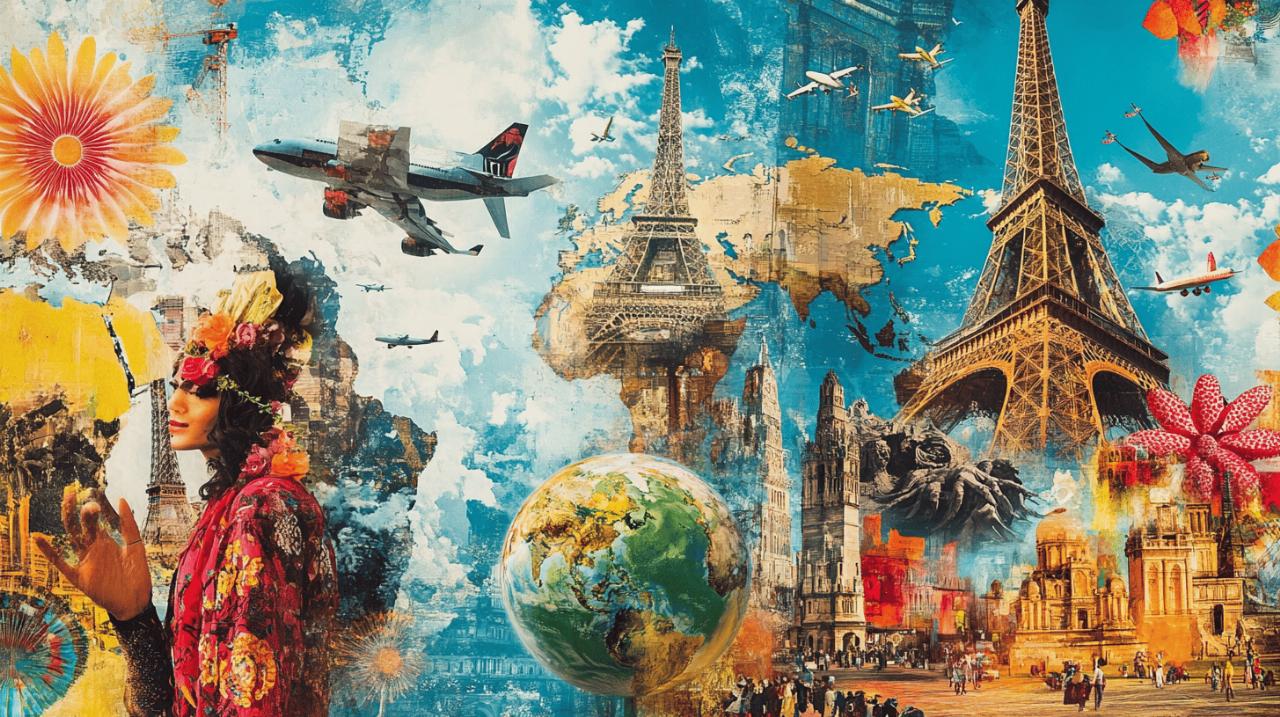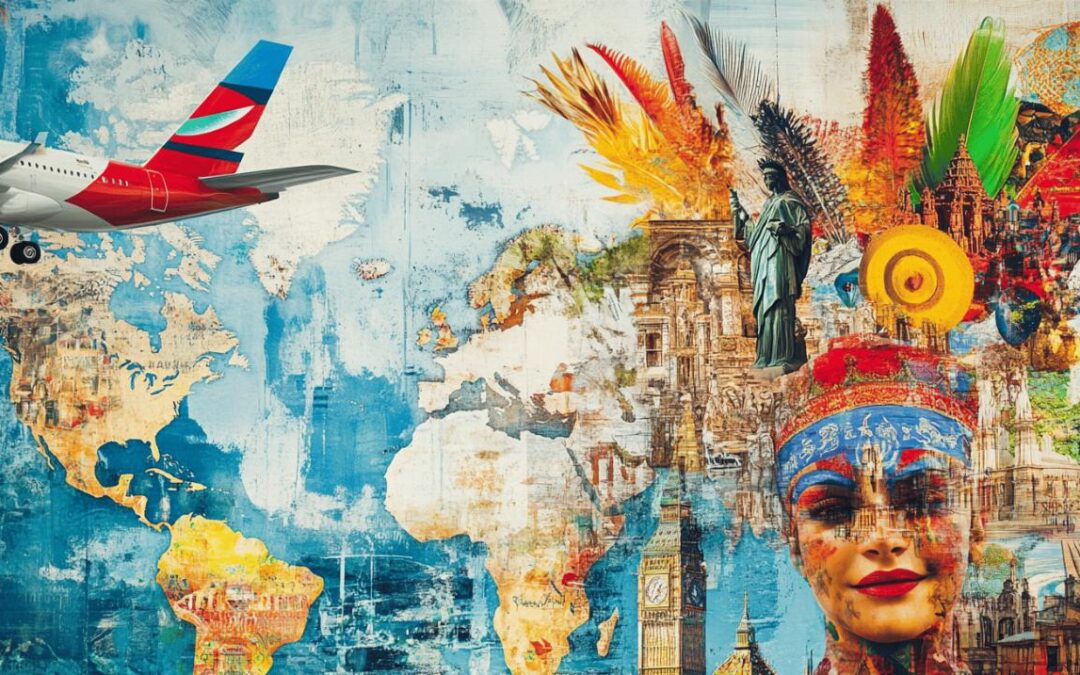Venturing beyond the confines of everyday life, travel offers us a canvas to paint vibrant memories and forge meaningful connections. When we step into unfamiliar territories, we open ourselves to a world of diverse cultural experiences that can transform our perspective and enrich our understanding of humanity. This journey of discovery is not merely about visiting new places but immersing ourselves in the authentic tapestry of local life.
Embracing local traditions and customs
The essence of cultural travel lies in the respectful embrace of traditions that may differ significantly from our own. The Travelling Dolls community has long advocated for this approach, highlighting how genuine cultural immersion creates more meaningful travel experiences than standard tourist packages. By taking the time to understand the cultural norms of your destination before arrival, you position yourself to engage with local communities in a manner that demonstrates respect and fosters authentic connections.
Research suggests that immersive travel experiences expand our minds and reduce judgmental tendencies, allowing us to appreciate diverse perspectives. This cultural understanding isn't merely about observation; it involves active participation. Whether you're exploring the ancient ruins of Greece or navigating the Silk Road cities of Uzbekistan, each destination offers unique opportunities to engage with local heritage in meaningful ways.
Understanding cultural norms before you arrive
Preparation forms the cornerstone of respectful cultural travel. Before embarking on your journey, dedicate time to learning about the customs, etiquette, and social expectations of your destination. This might involve reading literature from local authors, watching documentaries, or connecting with previous visitors through travel forums. Such preparation helps you avoid unintentional cultural missteps and demonstrates your commitment to respecting local sensibilities.
Learning even basic phrases in the local language can dramatically transform your travel experience. This simple effort communicates respect and often leads to warmer welcomes from local communities. Consider creating a small phrasebook with everyday expressions that will help you navigate markets, restaurants, and casual conversations with residents who might not speak your language.
Participating in traditional ceremonies and celebrations
Local festivals offer windows into the heart of cultural identity. These celebrations, often rooted in centuries of tradition, showcase authentic expressions of community values, historical narratives, and artistic heritage. Rather than viewing these events as spectacles, approach them as opportunities for genuine cultural exchange and learning.
In destinations like Sri Lanka, you might find yourself welcomed into cooking lessons that reveal the intricate spice combinations that define local cuisine. Similarly, a journey through India presents opportunities to witness diverse traditions, from Himalayan mountain rituals to elaborate wedding ceremonies. These participatory experiences create lasting memories while fostering deeper cultural understanding than standard tourist attractions could ever provide.
Beyond tourist hotspots: finding authentic experiences
 The true character of a destination rarely reveals itself in crowded tourist attractions. While landmarks like the Great Pyramids in Egypt or the Taj Mahal in India deserve their reputations, the most enlightening cultural insights often emerge in quieter, less frequented spaces where everyday life unfolds naturally. This approach to travel—sometimes called slow travel—prioritises depth of experience over quantity of sights.
The true character of a destination rarely reveals itself in crowded tourist attractions. While landmarks like the Great Pyramids in Egypt or the Taj Mahal in India deserve their reputations, the most enlightening cultural insights often emerge in quieter, less frequented spaces where everyday life unfolds naturally. This approach to travel—sometimes called slow travel—prioritises depth of experience over quantity of sights.
Sustainable tourism practices encourage travellers to venture beyond established tourist circuits, distributing economic benefits more widely throughout local communities. This approach not only enriches your travel experience but also contributes to more equitable tourism development. By staying in locally-owned guesthouses rather than international hotel chains, eating at family-run restaurants, and purchasing directly from artisans, you create meaningful economic support for the communities you visit.
Seeking recommendations from locals rather than guidebooks
While guidebooks and travel websites offer valuable orientation, they often channel visitors to the same handful of attractions, creating overtourism in some areas while leaving other remarkable locations virtually undiscovered. Instead, cultivate the habit of asking locals for their recommendations. The cafe owner who greets you each morning, the taxi driver who shares stories during your journey, or the artisan crafting traditional goods—these individuals possess insights no guidebook can match.
Public transportation provides another avenue for authentic cultural engagement. Rather than isolating yourself in private transfers or tour buses, consider navigating local bus networks, trains, or even motorbike taxis where appropriate. These shared experiences often lead to spontaneous conversations with residents and offer glimpses into everyday life that remain invisible to those travelling in tourist bubbles.
Exploring neighbourhoods away from popular attractions
Every city has its distinct neighbourhoods, each with unique character and charm. While tourist districts offer convenience and familiarity, venturing into residential areas reveals the authentic rhythm of local life. Morning markets where residents shop for fresh produce, community parks where families gather, and local eateries serving regional specialities—these spaces offer genuine cultural insights without the performance aspect that sometimes characterises tourist zones.
Consider destinations known for their immersive cultural opportunities. Places like Vietnam, Morocco, and Portugal offer rich cultural traditions alongside landscapes of remarkable beauty. In Hanoi, for instance, beyond the well-known attractions lie neighbourhoods where cultural heritage is preserved through traditional crafts and seasonal festivals. Similarly, coastal areas like Dakhla Beach in Morocco provide opportunities to connect with local communities through activities like camping and water sports while experiencing traditional Moroccan hospitality.
The most valuable souvenirs from cultural travel aren't the trinkets we purchase but the perspectives we gain. By approaching travel with curiosity, respect, and openness, we transform our journeys from simple sightseeing into profound opportunities for personal growth and cultural exchange. Whether through independent exploration or thoughtfully selected guided experiences with companies like Cox & Kings that prioritise ethical community engagement, the path to meaningful cultural travel begins with the intention to understand rather than merely observe.

